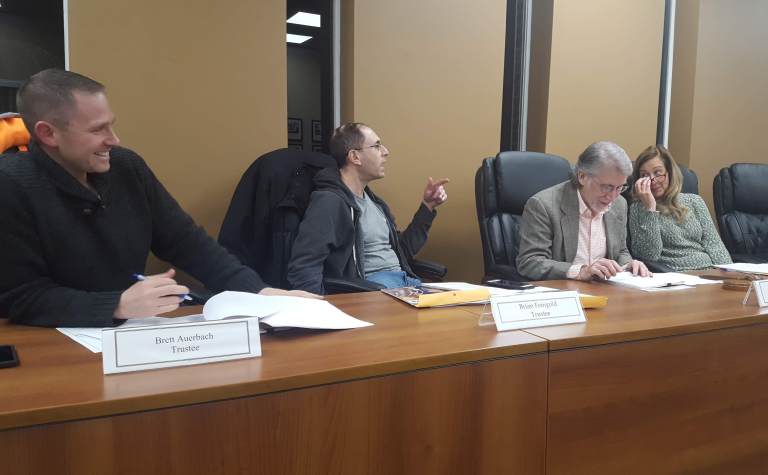
The Roslyn Estates Board of Trustees is considering changing the digital, publicly available version of its village code – the document that defines local laws – from a PDF to eCode software, which streamlines navigation.
eCode allows web users to jump to specific sections of a code by navigating with a clickable table of contents. It is also searchable.
Most villages use it, said village attorney Chris Prior.
“It is extremely user-friendly. You can search for something right away.”
The board said it will continue to consult with General Code, the company that manages the code on its website, as it considers the prices of different versions of the eCode software.
Trustee Brett Auerbach said the current PDF format seems antiquated. Other board members questioned whether an upgrade would be a worthy investment and how many people even visit the village code online.
“As a lawyer I’m always getting pitches for all of the newfangled kinds of search engines, and at some point you’ve just got to say, ‘No thanks. I can’t afford all that,’” said Trustee Stephen Fox. “There’s a cost-benefit to it.”
Mayor Paul Leone Peters said he once spoke to a resident who said the current PDF format was difficult to use.
“I’ve actually referred to the code from time to time…and it is an enormous pain,” he said.
On another front, the board also said it intends to look into how the company that collects village trash and recycling is separating materials.
A resident had said the collectors combine recyclables with trash despite residents separating them and the village’s contract requiring the collectors to do so as well, Peters said.
Auerbach said he has seen the collectors trashing cardboard but leaving plastic and glass separate as recyclables.
“[Village clerk and treasurer Michael Tomicich] is going to be meeting with the lead guy on our route before we do anything further to make sure that we are getting what we’re paying for,” Peters said.
The village will hold two public hearings on March 18: one for a law that would allow the board of trustees to vote to pierce the state’s 2 percent tax cap if it so desires and another that would have the village adhere to the most stringent federal telecommunication standards.
The tax cap law is a fairly routine precautionary procedure that many villages have been taking recently.
If the board passes the law but does not decide to pierce the tax cap, it will have to pass another law to remove the allowance to exceed the cap.
The telecommunication towers law would be in the village zoning code.
“This law is designed to permit the village to regulate and to collect fees to the maximum extent allowable under the federal laws,” Prior said.






